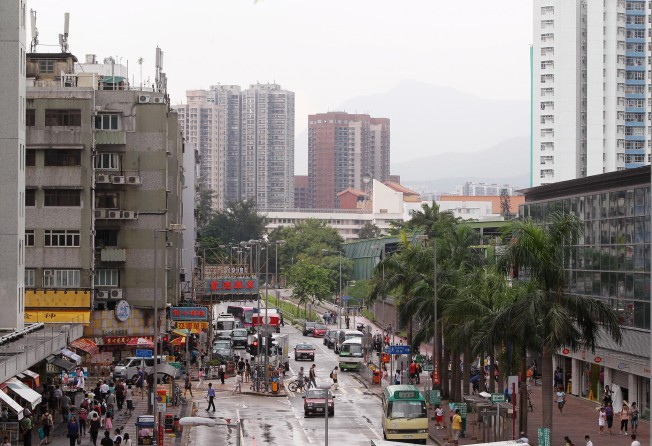Lack of hostel space in Hong Kong forces non-local students into rental market

At least 12,000 non-local university students, most from the mainland, are living in private-sector flats because of a lack of campus hostel places.
The students are putting pressure on the market as they compete with locals, yet they have been overlooked by the high-level committee that is formulating the city's long-term housing policy.
The figure was compiled by the South China Morning Post with data gathered from six of the city's eight universities.
One member of the Long Term Housing Strategy Steering Committee, Stanley Wong Yuen-fai, said: "We have not been given relevant data about how many mainland students are finding homes outside campus. That 12,000 non-local students have entered the private market is a significant figure, impacting on the housing stock."
Even if those students co-rented flats in groups of two, it would still mean they are taking up 6,000 flats, Wong said.
The committee, chaired by the Housing Minister, Professor Anthony Cheung Bing-leung, was set up by Chief Executive Leung Chun-ying to map out a strategy for the next decade. It will decide how much housing is needed based on population changes and the needs of various income groups.
It has identified more than 20 "focus groups", but non-local students are not one of them.
According to Post data, more than 20,829 non-locals are studying at the six universities this year. Among them, 8,116 live in accommodation provided by the universities, while the remaining 12,713 students must find housing on their own. The University of Science and Technology and the Institution of Education have yet to provide figures.
Of the six, the University of Hong Kong has the most non-locals finding their own housing, at 6,003, followed by Chinese University with 3,000 and Polytechnic University at 2,219.
Wong, who is taking a master's degree in comparative history at Chinese University, said he knew of dozens of mainland students renting flats in locations along the MTR line, such as Tai Wai, Tai Po and Mong Kok.
It was important to address their situation, he said.
"I don't subscribe to the anti-mainland sentiments. We have to face the problem and assess the city's capacity, not just in milk powder and school places, but also in housing. In setting a provision target, we must get all the figures right."
Committee member Marco Wu Moon-hoi said it had not yet discussed the needs of the city's "mobile population".
"Time is running out, and I do hope the committee will talk about it and the consultants will do surveys to find out how many students and employees from the mainland, and from other parts of Asia, are entering the property market," he said.
Mainland students accounted for at least 80 per cent of all non-locals at the city's universities over the past three years. The Education Bureau said last month that it "had no plans to conduct surveys on the situation of students renting accommodation near campus and the relevant rent levels", in reply to a lawmaker's question.
This year there are 82,169 full-time students, local and overseas, at the eight universities but only 33,566 hostel places are available, according to the bureau.
Roy Choi, senior director of Centaline Property's Sha Tin division, said mainland students accounted for about 30 per cent of the rental deals in some Sha Tin private estates between May and September last year. "The students were willing to pay 5 or 10 per cent higher than the market level. They don't bargain," Choi said.